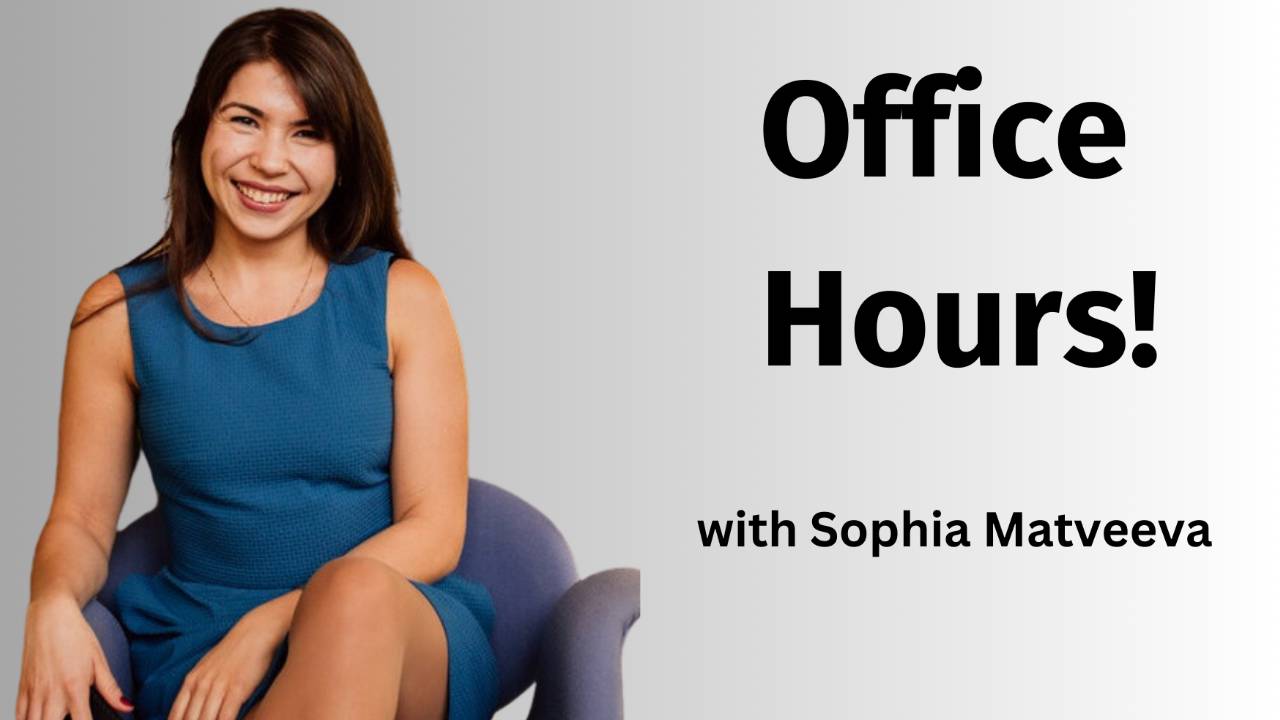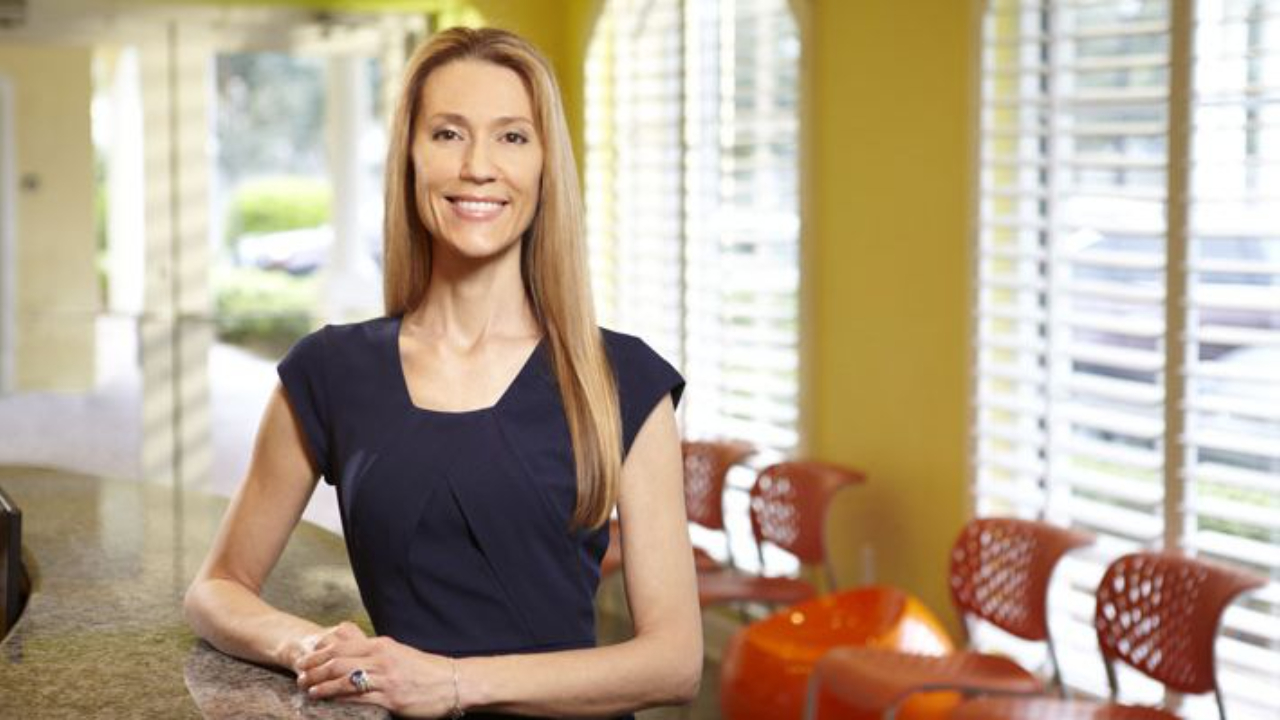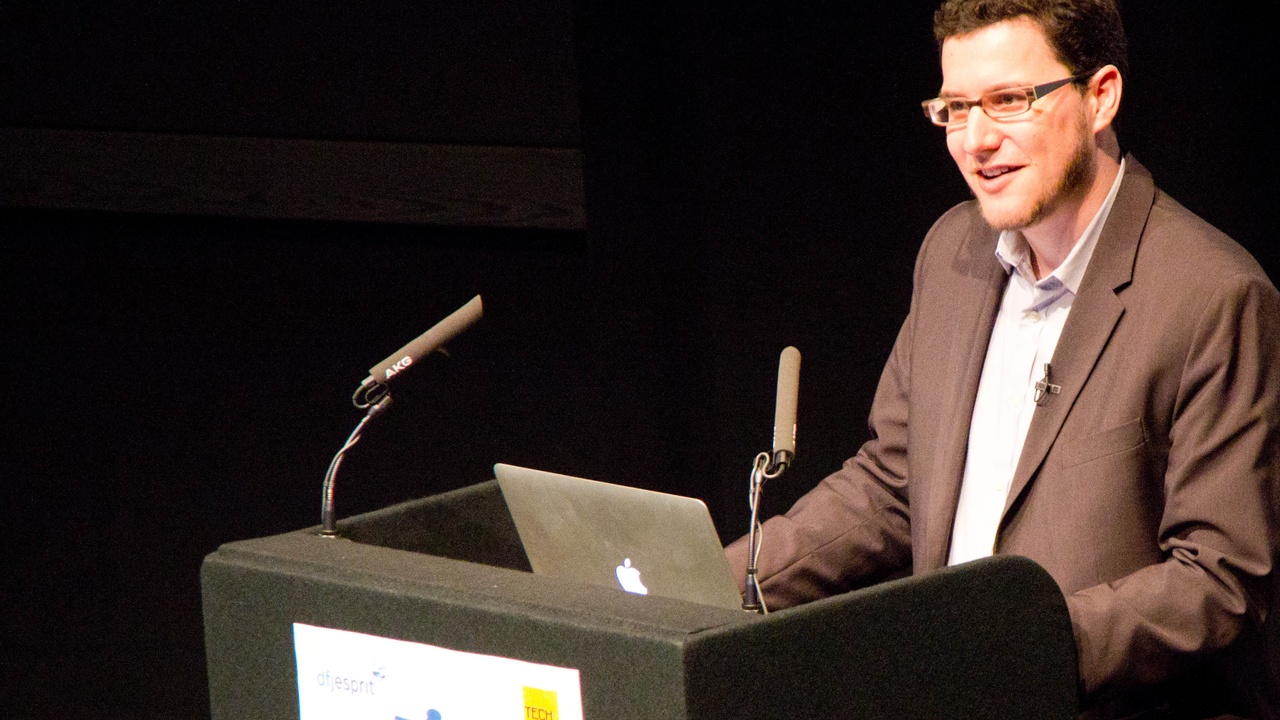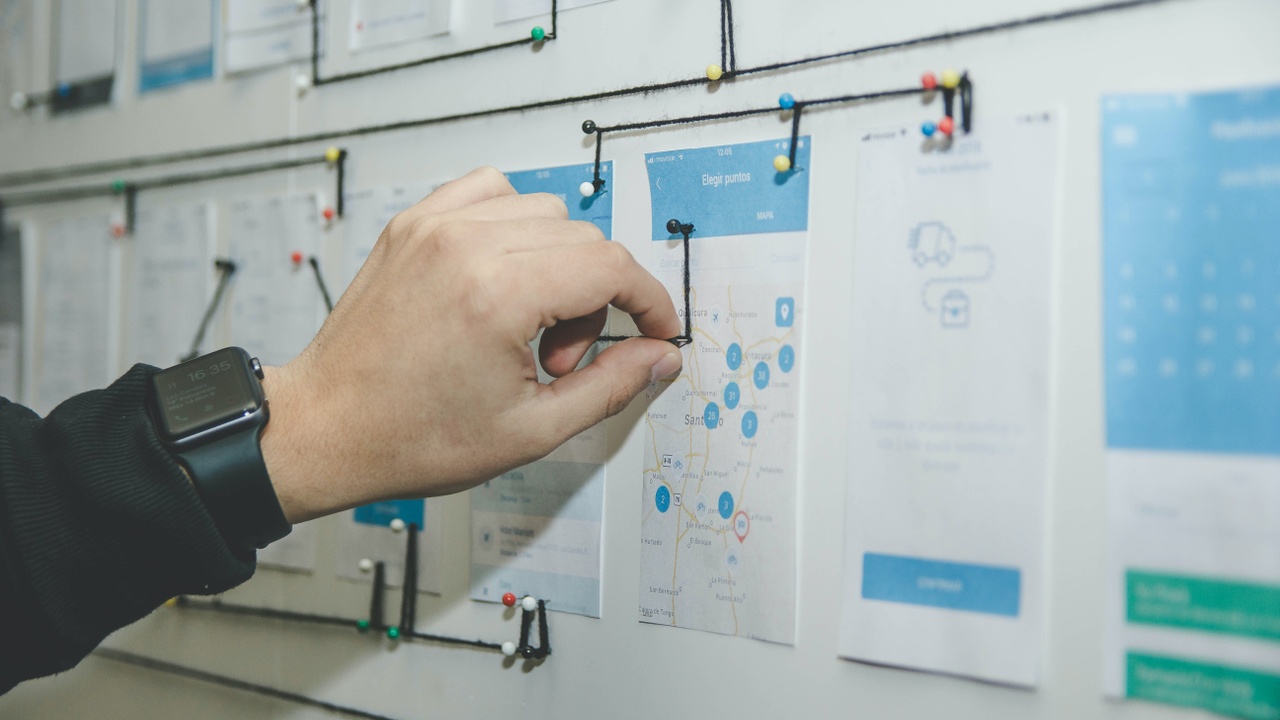To succeed in the Digital Age, traditional business skills are no longer enough. Business Leaders need a new skillset: Digital Leadership.
This doesn't mean learning to code or taking a Python course. (Thank God!)
Instead, it means learning how to collaborate effectively with developers and data s...
"You can design your work life as an employee or a business owner. Design thinking is for people like you, whether you receive the paycheck or sign the paycheck," Bill Burnett, Stanford School of Design.
In this episode you will learn how to use Design Thinking to make decisions and move towards yo...
Listen to this Office Hours session with Sophia Matveeva MBA. Questions covered in this episode:
- Should I do an MBA or a Computer Science degree?
- What's the difference between Product Management roles in deep tech vs standard businesses?
- What tech trends are the ones to watch right now?
- How do ...
Product makers know how to make a product. But technologists do not know whom the product is for and what their aim is.
When it comes to working with the tech product team, a business leader's job is to represent the user and their needs.
Listen to this episode to hear three key insights business ...
Dr Marilyn Sandor is the founder of GoodCheckUp, a telehealth app that gives you dental care whenever, wherever. But her success story came out of a crisis: when Covid struck, she had to shut down her dental clinic, thus losing her income and leaving her patients in the lurch.
Not one to sit still,...
Most products brought to market fail. Tech Entrepreneur Ash Maurya says this is "not because we can't complete what we set out to build, but because we waste time, money, and effort building the wrong product."
Maurya is the author of Running Lean: Iterate from Plan A to a Plan that works, and crea...
Despite the many press releases touting Silicon Valley's diversity efforts, the majority of funding from this innovation will still go to white males in 2023.
While this reality is not what many of us want, it is an opportunity for investors and innovators to capture overlooked user markets.
Lea...
Software updates can have weird unintended consequences that the company doesn't even know about. Existing features that worked perfectly can stop working, leading to lost revenues and annoyed customers.
Listen to this episode to learn why this happens and how non-technical leaders deal with it whe...
"Successful entrepreneurs don't have better ideas, they have a better process," says Eric Reis in The Lean Start-Up. To learn how to innovate with speed, listen to this week's episode.
Learning notes from this episode:
- “A start-up is a human institution designed to create a new product or servic...
To become SMART MONEY as an investor, founder or corporate innovator, you have to know what questions to ask about a product. This helps you spot signs of early success or early warning.
Listen to this episode to learn what questions to ask and how to link product innovation to business strategy. ...
Even the smartest professionals who don’t have backgrounds in digital businesses make the same mistakes when it comes to tech start-ups.
They often want vanity metrics, as opposed to what truly matters, and because they don’t know how a tech product gets made, they don’t know how to properly evalua...
When an app has too many features and pop ups, most users get confused and frustrated. This is feature creep: when the product’s core functionality becomes hidden in too many options and things to do.
Feature creep happens when a team is determined to stay productive, but loses sight of its strateg...















